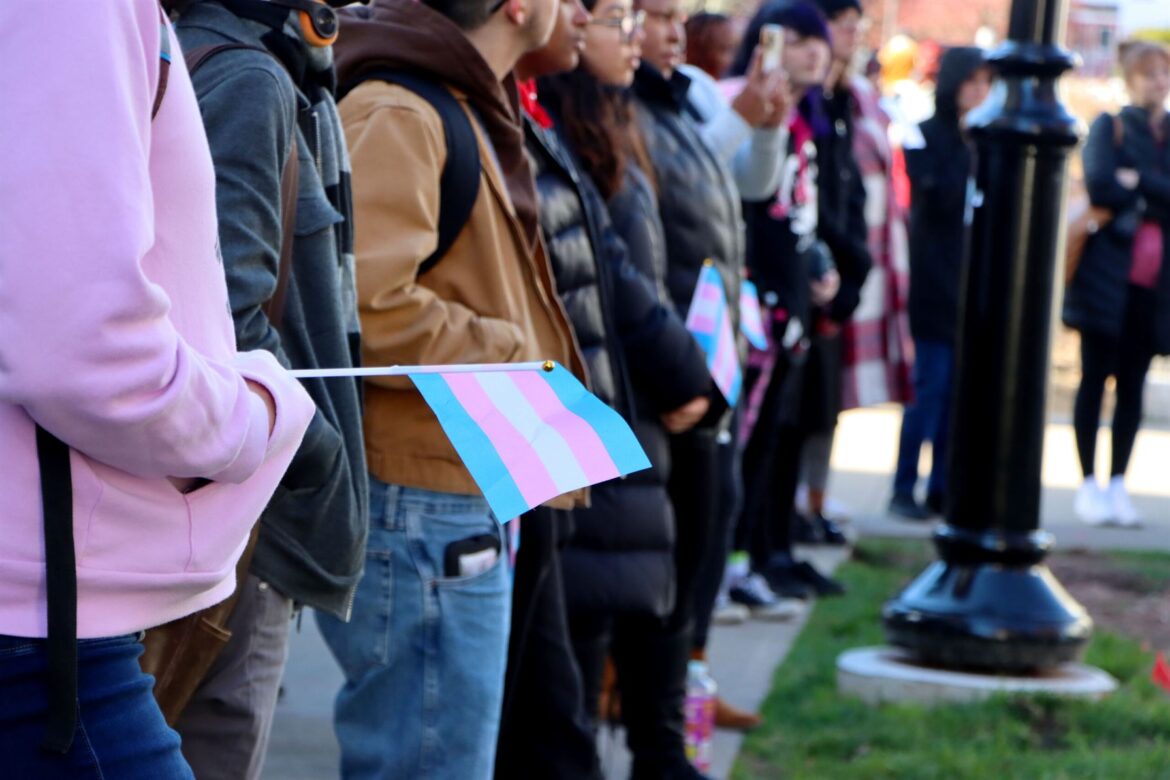In the past decade, many politicians have shown a growing concern with transgender athletes competing in the National Collegiate Athletic Association (NCAA). With the issue garnering national attention, New Jersey gubernatorial candidates Mikie Sherrill and Jack Ciattarelli take opposing stances on the issue.
Sherrill has openly advocated for transgender athletes, voting twice against the “Protection of Women and Girls in Sports” Act, a Republican bill introduced in the House of Representatives that “generally prohibits school athletic programs from allowing individuals whose biological sex at birth was male to participate in programs that are for women or girls.”
Twenty-three days after the bill was passed in the House, President Trump signed the executive order titled “Keeping Men Out of Women’s Sports,” which prohibits transgender women from competing on women’s NCAA teams. Ciattarelli and the New Jersey Republican Party support President Trump’s executive order while condemning Sherrill’s ongoing advocacy for the transgender community. In a campaign post released on X, Ciattarelli calls out Sherrill for supporting “boys in girls’ sports.”
Shortly after Ciattarelli’s message, the NJGOP posted on Facebook that Sherrill is “disgusting” for her inclusive remarks on transgender athletes, further stating, “New Jersey Republicans will say what they won’t: Boys do not belong in girls’ sports”. NJGOP stated on X, “TWICE, she threw female athletes under the bus for woke activists.”
President Trump endorsed Ciattarelli in the upcoming gubernatorial race and criticized Sherrill for her stance on transgender athletes. Trump wrote on Truth Social, “Sherrill wants Open Borders (again!), men playing in Women’s Sports, Transgender for everyone, and all of the things that almost DESTROYED America.”
Despite criticism, Sherrill has a record of advocating for women in sports. In 2023, she and republican Rep. Maria Salazar introduced the bipartisan “Women in NCAA Sports Act” that would “[establish] a Commission on Men’s and Women’s Fairness in College Sports.” Sherrill also received an endorsement from the Human Rights Campaign for her LGBTQ+ advocacy, though she has been largely silent about the topic during her gubernatorial campaign.
Since her nomination in June, Sherrill has not taken a solid stance on the recent transgender ban. Fox News Digital reported that they have reached out several times regarding the matter, but Sherrill’s team has not responded.
Overall, the ban does not affect many athletes’ eligibility due to the extremely low percentage of transgender women in the NCAA. During a Senate Judiciary Committee hearing in Dec. of 2024, NCAA President Charlie Baker testified before Congress that there were “less than 10” transgender athletes competing among 510,000 athletes total.
Despite the low numbers, a recent New York Times/Ipsos survey of 2,128 voters found that 79% felt transgender women “should not be allowed to compete in women’s sports.”
According to Dr. Bradley Anawalt, an endocrinologist and professor at the University of Washington School of Medicine, the crux of the debate comes to two important values: fairness and the desire for everyone to participate.
In terms of a competitive advantage, Anawalt says that the research is “incomplete.” Previous studies have been based on military recruits, but research on elite athletes is lacking. Therefore, the studies are unable to give a concrete answer as to how hormone therapy can affect a person’s athletic capabilities over a long period of time.
“We can get better and better evidence and data about the effects of gender-affirming hormone therapy on athletic performance,” Anawalt says. “But, ultimately, this is going to be a question for the general public to try to balance out those two very important issues.”



